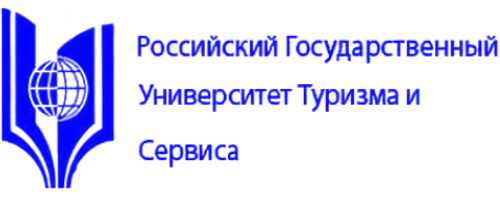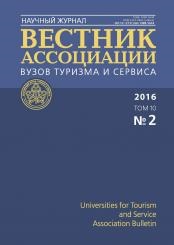Thematic presentation of cultural specificity of a destination can become a cultural link between culture and a tourist destination of unfamiliar culture, facilitate interpretation of the cultural features of visited sites. The relevance of the topic is due to the fact that the thematic tourism offers a new way to look at both popular and obscure objects ofdisphy, the market for thematic tours is very broad as wide and diverse in range are human interests. The article describes the range of issues related to the identification of the literary aspects of the emergence of tourism in the structure of contemporary thematic tourism. While traveling, man strives to gain new knowledge, which, without the written fixation would have been lost and forgotten. Russia as a country known for its rich literary heritage, has great potential for the development of literary tourism. Literary and memorial museum preserve the memory and tell about the life and work of the best representatives of world and national literature, pass the baton to the spiritual heritage of future generations. A large number of literary museums are concentrated in Moscow and St. Petersburg, where the life and work of writers and poets of different eras took place. In addition, there is tourism demand for literary estates, which significantly expand literary tours. The objectives of this paper is to identify the main reasons consumers take literary tours, to designate sites of literary tourism, consider the specificity of the organization of literary tourism products, as well as to analyze the characteristics and differences of cultural tourism.
cultural tourism, thematic tourism, literary tour.
Введение. Литературный туризм является одним из подвидов тематического туризма. Тематический туризм в последнее время становится все более актуальным, что связано, прежде всего, с диверсификацией туристских продуктов и услуг. Необходимость диверсификации во внутреннем и въездном туризме Российской Федерации связана с глобальными изменениями на рынке, вызванными кризисными явлениями последних месяцев. Возможный рост внутренних потоков, перспективы развития требуют поиска новых форм, технологий и содержания обслуживания туристов и однодневных экскурсантов.
Причины возникновения тематического туризма лежат в процессах, протекающих на современном этапе в международном туризме. Повышение конкурентной борьбы на туристском рынке привело к диверсификации тур продукта и появлению новых видов туризма, в числе которых — тематический туризм. Согласно прогнозам, этот вид туризма станет одним из самых популярных уже к 2020 г. [7].
В международной теории туризма не существует официального определения тематического туризма. В работах по туризму зарубежных авторов он появляется под названиями special interest tourism («туризм по особым интересам»), а также как thematic tourism («тематический туризм»).
Последнее понятие можно встретить в программе Европейской Комиссии «Содействие транснациональных тематических туристических продуктов в Европейском союзе как средство устойчивого развития туризма» (2011). В целях стимулирования конкуренции в европейском туристском секторе Комиссия предлагает «содействовать диверсификации туристских
1. Voronkova, L.P. Istoriia turizma [History of tourism]: Textbook. M.: Moskovskii psikhologo-sotsial´nyi institut; Voronezh: Izdatel´stvo NPO «MODEK», 2001. 304 p.
2. Dzhandzhugazova, E.A., Agamirova, E.V., Lapochkina, V.V., Volobueva, I.I., Kudriakova, S.O., Maksimova, L.M., Shalimova, A. A. Metodologiia izucheniia i diagnostiki turistsko-rekreatsionnykh resursov Rossiiskoi Federatsii [The methodology of the study and diagnosis of tourist and recreational resources of the Russian Federation] // Research report (Ministerstvo obra-zovaniiainauki RF), 2011. № gos. registratsii 01201168005.
3. Kortunov, V. V. Ratsional´noe i irratsional´noe v evoliutsii kurturno-istoricheskikh tipov mirovozzreniia [Rational and irrational in the evolution of cultural-historical types of worldview]. PhD thesis / Gos. in-t iskusstvoznaniia. M., 1999.
4. Kortunov, V.V., Begstvo ot real´nosti ill oborotnaia storona telekommunikatsionnykh tekhnologii [Escape from reality or the reverse side of telecommunication technologies]. M., 2003.
5. Kortunov, V. V. Imitatsiia zdravogo smysla. Ocherki po teorii mirovoi kul´tury [Imitation of common sense. Essays on the Theory of World Culture]. M., 2001.
6. Krasnaia, S.A. Kul´turnyi turizm: prosvetitel´skaia sushchnost´ i faktory razvitiia [Cultural tourism: the essence of enlightenment and development factors]. PhD thesis abstract. 24.00.01. M., 2006.
7. SokolovaM. К Istoriia turizma [History of tourism]: Textbook. M.: Masterstvo, 2002. 352 p.
8. StoliarovD. Iu., Kortunov V. V. Kul´turologiia [Cultural Studies]. M., 1998.
9. EVENT-CATENDAR: EVENT AS THE BASIS OF THE TERRITORY TOURIST ATTRACTIVENESS Agamirova, Ek.V., Agamirova, El.V, Adashova, ТА, Valkova, T.M., Kosareva, N.V, Lapochkina, VV Life Science Journal. 2014. T 11. №11. pp. 687-689.
10. Kortunov, V.V., Platonova, N.A. Philosophical and socio-cultural aspects of the economic type of thinking. Middle East Journal of Scientific Research. 2013. T. 16. № 2. pp. 296-303.
11. London´s Museums of Literature& the Written Word. URL: Available at: http://www.londonupclose.com/london-muse-ums-of-literature-and-the-written-word.html [Accessed on February 28, 2015].
12. Promotion of trans-national thematic tourism products in the European Union as means of sustainable tourism development. Grant Programme, 2011. Available at: http://ec.europa.eu/enterprise/newsroom/cf/_getdocument.cfm7doc_ id=6453 [Accessed on March 08, 2015].





